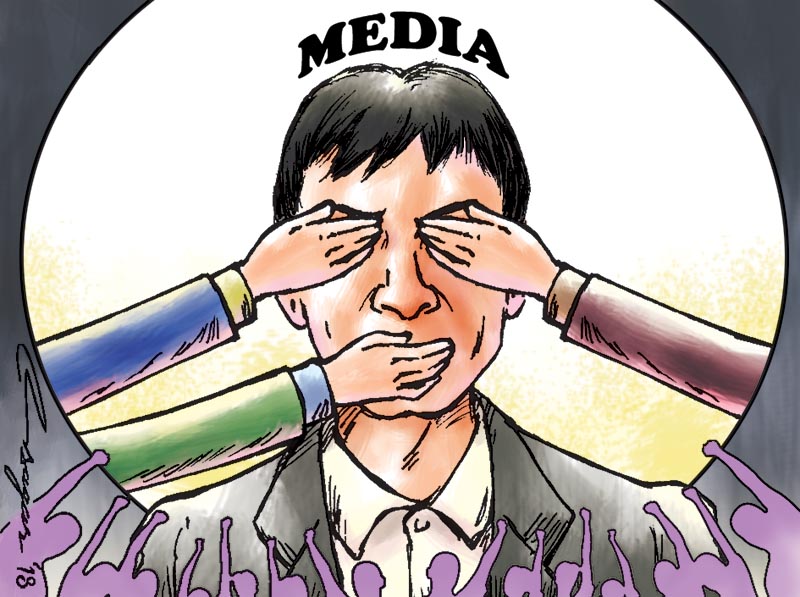Media glare on public office holders allowed
Media glare on public office holders allowed
Published: 09:20 am Sep 12, 2018

Our constitution guarantees press freedom. We cannot bar media from reporting about people holding public posts Kathmandu, September 11 The members of the Parliamentary State Affairs and Good Governance Committee today approved amendments made to the controversial Right to Privacy Bill, enabling media to disseminate personal information of people holding public posts. With this development, media, as feared in the past, will not be prohibited from disclosing personal information of incumbent and retired public office holders, who are attempting to commit or have committed unlawful acts. The Right to Privacy Bill originally drafted by the government stated that an individual’s citizenship certificate, passport, academic qualification, voter identity card, driving licence, bank accounts, debit and credit cards, cheques and drafts, and details of immovable property and securities could not be made public unless required by law. What was controversial about this provision was that it applied to incumbent and retired public office holders as well. Such a provision, many had said, would bar media from disseminating facts that could lead to exposure of wrongdoings or suspicious acts of incumbent and retired public office holders. The Federation of Nepali Journalists, the Nepali Congress and even lawmakers of the ruling party had been calling for amendment to this provision. Six lawmakers — Krishna Bhakta Pokharel, Pabitra Niraula, Narayan Prasad Khatiwada, Ghanashyam Khatiwada, Shashi Shrestha and Nabina Lama -- had formally registered amendment to the bill. The amended clause states that media can publish or broadcast information of public office holders and make healthy criticism of those holding public posts. “The committee secretariat will present the amended bill in the committee on September 13 and formally approve it,” said committee Chairperson Mina Pandey. The revised bill, according to Pandey, will be presented to the House of Representatives on September 14. “Our constitution guarantees press freedom, so we cannot bar media from reporting about people holding public posts,” lawmaker Krishna Bhakta Pokharel said. The revised bill has also made it mandatory for public office holders to make their citizenship certificates, academic certificates and property details public. This provision was included in the bill following calls made by former law minister Sher Bahadur Tamang and former health minister Gagan Thapa. “Based on this provision, the government and Parliament should amend the act based on which corruption watchdog, the Commission for the Investigation of Abuse of Authority, has been established, as the law does not make it mandatory for its officials to make their assets public,” said Tamang. “Although the initiative taken by the parliamentary committee is commendable, Clause 29 (3) and Clause 35 of the bill need to be amended,” said Tara Nath Dahal, chief executive of Freedom Forum, an NGO that promotes media freedom. Clause 29 (3) of the bill states that the government will handle cases related to violation of right to privacy. This means people charged with violating the bill’s provisions can be rounded up by police for investigation as in other criminal cases. “The government should not be allowed to handle such cases,” said Dahal. “Instead, the government should allow individuals who deem their right to privacy has been violated to pursue such cases. This will prevent defendants from ending up in police custody on the pretext of investigation.” Clause 35 of the bill, on the other hand, will infringe upon people’s right to public information, as it will supersede other laws, such as the Right to Information Act, that guarantee access to public information, according to Dahal.
